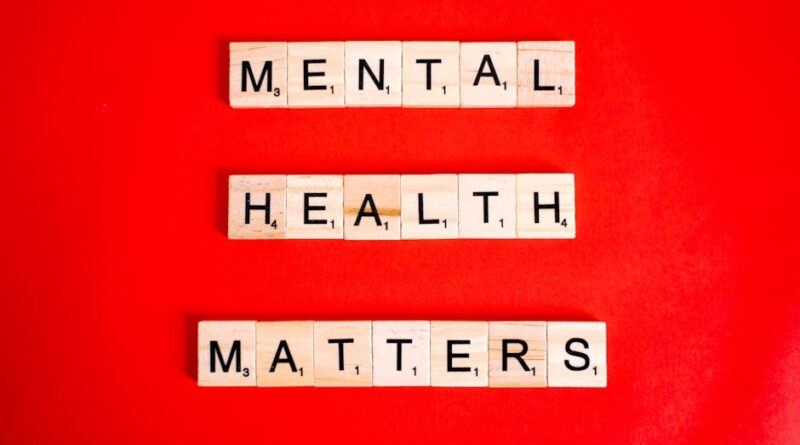The Importance of Mental Health Awareness: Understanding, Educating, and Empowering
Welcome to a journey into the depths of mental health awareness a topic that touches the lives of millions around the world. In a society where physical health often takes the spotlight, the significance of mental health awareness cannot be overstated. From breaking the stigma surrounding mental health to promoting early intervention and support, understanding the importance of mental health awareness is crucial for individuals, communities, and society at large. Let’s delve into this critical subject, exploring its various dimensions, implications, and the transformative power it holds.
The Roots of Mental Health Awareness

Before diving into the present-day significance of mental health awareness, it’s essential to understand its historical roots. Throughout history, mental health has been stigmatized and misunderstood, leading to the marginalization of individuals struggling with mental health conditions. However, the evolution of psychology and psychiatry as disciplines has shed light on the complexities of the human mind, paving the way for increased awareness and advocacy.
In recent decades, movements like World Mental Health Day and Mental Health Awareness Month have gained momentum, highlighting the importance of destigmatizing mental health issues and promoting open conversations. The global community’s recognition of mental health as a fundamental component of overall well-being has catalyzed a shift towards proactive mental health awareness initiatives.
The Impact of Mental Health Awareness on Individuals

For individuals grappling with mental health challenges, the presence of a supportive and informed community can make a world of difference. Mental health awareness initiatives educate individuals about common mental health conditions, symptoms, and available resources, empowering them to seek help when needed. By fostering a culture of understanding and empathy, mental health awareness reduces feelings of isolation and shame often associated with mental illnesses.
Moreover, heightened mental health awareness encourages early intervention, leading to improved treatment outcomes and long-term well-being. When individuals are equipped with the knowledge to recognize warning signs and access appropriate support, they can address mental health concerns before they escalate, ultimately enhancing their quality of life.
The Ripple Effect: Mental Health Awareness in Communities

Communities play a pivotal role in shaping the mental health landscape, influencing individuals’ perceptions and behaviors towards mental health. By fostering a culture of mental health awareness, communities create safe spaces for open dialogue, support, and advocacy. Schools, workplaces, and local organizations that prioritize mental health education contribute to a more inclusive and compassionate society.
Furthermore, when communities embrace mental health awareness, they become better equipped to address systemic issues that impact mental well-being. By advocating for policies that prioritize mental health services, destigmatize mental illness, and promote mental wellness, communities can create environments that nurture mental health for all individuals.
The Role of Education in Mental Health Awareness

Education serves as a powerful tool in promoting mental health awareness and destigmatizing mental illness. By integrating mental health education into school curriculums, students gain a foundational understanding of mental health, empathy towards those struggling, and essential coping skills. When young individuals are educated about mental health from an early age, they are more likely to seek help when needed and support others in their mental health journeys.
Moreover, educating the general public about mental health through workshops, seminars, and online resources enhances overall awareness and reduces misconceptions. When individuals are knowledgeable about mental health conditions, they are less likely to perpetuate harmful stereotypes or discriminate against those experiencing mental health challenges.
Mental Health Awareness: Breaking Barriers and Building Bridges
While progress has been made in the realm of mental health awareness, significant barriers remain that hinder widespread understanding and acceptance. Stigma, discrimination, lack of access to mental health services, and cultural taboos are among the many challenges that impede progress in promoting mental health awareness.
Breaking down these barriers requires a multi-faceted approach that involves advocacy, policy change, community engagement, and individual empowerment. By addressing the root causes of stigma and discrimination, raising awareness about the importance of mental health, and amplifying the voices of those with lived experiences, we can create a more inclusive and supportive society for all.
Common Misconceptions About Mental Health Awareness
One common misconception about mental health awareness is that it is solely about mental illness. In reality, mental health awareness encompasses a broader spectrum of mental well-being, including self-care, stress management, and emotional resilience. By debunking myths and misconceptions surrounding mental health awareness, we can cultivate a more nuanced understanding of the topic.
FAQs About Mental Health Awareness
1. What is the difference between mental health and mental illness?
Mental health refers to a person’s overall emotional, psychological, and social well-being, while mental illness pertains to specific conditions that affect one’s cognitive and emotional functioning.
2. How can I promote mental health awareness in my community?
You can promote mental health awareness in your community by organizing educational events, sharing resources, advocating for mental health policies, and fostering open conversations about mental well-being.
To Wrap Things Up
As we’ve journeyed through the various dimensions of mental health awareness, it’s evident that understanding, educating, and empowering individuals and communities is paramount in creating a mentally healthy society. By prioritizing mental health awareness, we not only support those in need but also cultivate a culture of compassion, resilience, and inclusivity. Let’s continue to champion mental health awareness, break down barriers, and build a brighter future for all.
Remember, mental health matters let’s keep the conversation going.




